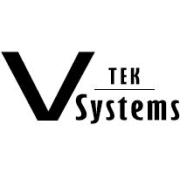

Infrascale Backup & Disaster Recovery and NetApp Cloud Backup compete in the data backup and disaster recovery market. NetApp Cloud Backup is considered superior due to its advanced features, although Infrascale offers better pricing and ease of use.
Features: Users value Infrascale Backup & Disaster Recovery for its reliability, comprehensive disaster recovery capabilities, and support for multiple environments. NetApp Cloud Backup is noted for high customization, efficient storage management, and strong cloud service integration.
Room for Improvement: Infrascale Backup & Disaster Recovery needs better reporting functionalities, a more intuitive management console, and refined core features. NetApp Cloud Backup requires improved technical support, faster response times, and enhanced user support services.
Ease of Deployment and Customer Service: Infrascale Backup & Disaster Recovery is easy to set up and manage with satisfactory customer service. NetApp Cloud Backup is more complex to deploy but offers strong support during setup and efficient yet slower customer service responses.
Pricing and ROI: Infrascale Backup & Disaster Recovery is cost-effective with lower setup costs and a predictable pricing model, making it ideal for SMBs. NetApp Cloud Backup has higher initial costs but provides substantial ROI through rich features and scalability, appealing to larger enterprises.
The right expertise, a timely response, and being able to get to the right person to help you resolve the problem are very important.
Their average mean time to resolve open tickets is an hour.
The most valuable aspects of Infrascale’s support for my company are the turnaround time and the resolution time.
One person can manage hundreds and hundreds of endpoints without any issues.
I would rate the stability a ten out of ten.
There was a recent announcement in terms of moving Infrascale to the cloud, which makes it easier for the customer in terms of usability.
Many customers do not rely on just one cloud provider and want to work with multiple clouds.
When the product works, there is really nothing to fix, but they can allow different types of backups, such as differential or incremental backups.
To someone considering Infrascale but is concerned about the price, I would say that they should get Infrascale's service no matter what it costs because any downtime or any loss of data is substantially worse than any cost for backup.
We recently renewed one of our agreements with them, and even though we were going to renew anyway, they added more margin in terms of a discount for us for renewing early.
The per-terabyte pricing is very competitive compared to the others.
What I like the most about it is that backups and restores are simple, straightforward, and clean.
Performing backup and recovery can be done very intuitively with the solution and the interface that is part of the solution.
| Product | Market Share (%) |
|---|---|
| Infrascale Backup & Disaster Recovery | 0.7% |
| NetApp Cloud Backup | 0.5% |
| Other | 98.8% |


| Company Size | Count |
|---|---|
| Small Business | 16 |
| Large Enterprise | 1 |
|
Infrascale overcomes the complexity of creating backup and disaster recovery solutions without sacrificing performance and reliability. We provide fast, secure recovery that enables customers to feel confident that their data is fully protected from any type of disaster, whether it be operational, environmental, or malicious. Infrascale provides data protection for SaaS applications, endpoints, and servers. SaaS BACKUP Protect Microsoft 365, Google Workspace, Box, Dropbox, and Salesforce data from accidental deletion and malicious attacks. Infrascale Cloud Application Backup (ICAB) provides customers with essential data protection that isn’t included in their SaaS provider’s limited retention policies. It also protects the broadest set of SaaS applications and delivers ease of use and ease of deployment. ENDPOINT BACKUP Direct-to-cloud backup and recovery solution for endpoints. Infrascale Cloud Backup (ICB) provides unlimited retention and version history, MSI installer and single pane of glass management, and ransomware anomaly detection. This delivers ease of use, ease of management, and protection from cybersecurity threats. SERVER BACKUP AND DISASTER RECOVERY Boot ready in minutes to run your systems when they go down due to any reason including server crashes, ransomware attacks, or natural disasters. Infrascale Backup & Disaster Recovery (IBDR) provides boot-ready time for failover that averages 2 minutes as well as unlimited disaster recovery and failover testing. In order to eliminate downtime and data loss, IBDR also provides a centrally managed Infrascale Management Dashboard. |
NetApp Cloud Backup is a fully integrated service for cloud backup and restoration. It was created to comply fully with NetApp's native data management software ONTAP, used for hybrid cloud experience. NetApp Cloud Backup is used to create backup and restoration for the protection and archiving of data, databases, and virtual machines related to the Cloud and On-Premises data in ONTAP. The way NetApp Cloud Backup works is by automatically creating block-level incremental backups. This ensures that the created backups are very fast and easy to restore. It is suitable for data protection regarding on-premises software as well as in the public cloud. NetApp Cloud Backup provides users with the ability to protect their cloud data at affordable prices and with a user-friendly interface so they don't need a lot of technical knowledge to be able to secure their cloud storage.
The copies created by NetApp Cloud Backup can be stored in the user's personal object storage in the cloud as well as on premises with StorageGRID - NetApp's storage platform. The backup copies can be restored to the original source or to a different source in Cloud Volumes ONTAP. NetApp Cloud Backup provides backups to AWS, Azure, and Google Cloud.
The features NetApp Cloud Backup provides include:
In addition to enhanced security and protection from malicious attacks, the advantages of using NetApp Cloud Backup include:
Abbasi P., a User at a financial services firm, likes that NetApp Cloud Backup is a completely agentless solution.
A Service Manager at a tech services company values its stability, scalability, and good technical support.
We monitor all Cloud Backup reviews to prevent fraudulent reviews and keep review quality high. We do not post reviews by company employees or direct competitors. We validate each review for authenticity via cross-reference with LinkedIn, and personal follow-up with the reviewer when necessary.